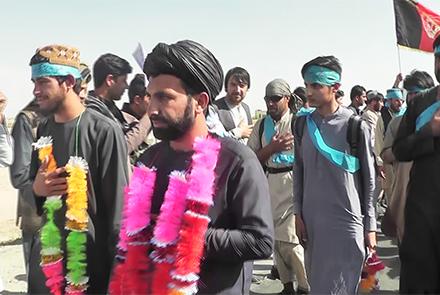Recent remarks by Saudi Arabia’s King Salman bin Abdulaziz and the Imam of Kaaba has added to the growing optimism in Afghanistan that peace talks with the Taliban could resume.
In line with this, the High Peace Council welcomed the king’s statement and said it would help their cause.
Saudi Arabia’s King Salman bin Abdulaziz said on Wednesday he has followed with great interest the truce reached over Eid-ul-Fitr between the Afghan government and Taliban and expressed his wishes for the truce to continue for a longer period of time.
In addition, the Kaaba Imam prayed for peace and stability in Afghanistan after Friday prayers.
“No doubt, Saudi Arabia has influence over the Taliban and their foreign supporters, especially Pakistan. We hope that Saudi Arabia, as the center of Muslim countries, will put the necessary pressure on the Taliban so that Afghans will witness a peaceful future,” said Sayed Ehsan Taheri, the spokesman for the High Peace Council.
Some Afghan lawmakers meanwhile said Saudi Arabia has good relations with the Taliban and that it can play an effective role in Afghanistan’s peace initiatives.
“This is an encouraging move. I think that those countries which are involved in Afghanistan have reached the point where their countries will face problems if Afghanistan remains insecure,” said Simin Barikzai, an MP from Herat.
“They (Saudi Arabian imams) should remember us in their prayers as it will definitely have a positive effect. Peace will hopefully come to Afghanistan if they (countries in the region) want it sincerely,” said Fawzia Sadat Samkanai, a senator.
An Afghan analyst, Nazim Samon, said other Arab nations should also help bring an end to the war in Afghanistan.
“Exactly, Saudi Arabia plays a spiritual role with the Taliban. It has been said over the past 15 years that Taliban is being financially supported from Saudi Arabia; therefore, Riyadh can play a good role in drying up the funding channels (to the Taliban),” Samon said.
This comes after Afghanistan’s religious scholars declared the Afghan war forbidden under Islamic law earlier this month.
The declaration was followed by a ceasefire announced by President Ashraf Ghani and a three-day truce on the part of the Taliban over Eid.


